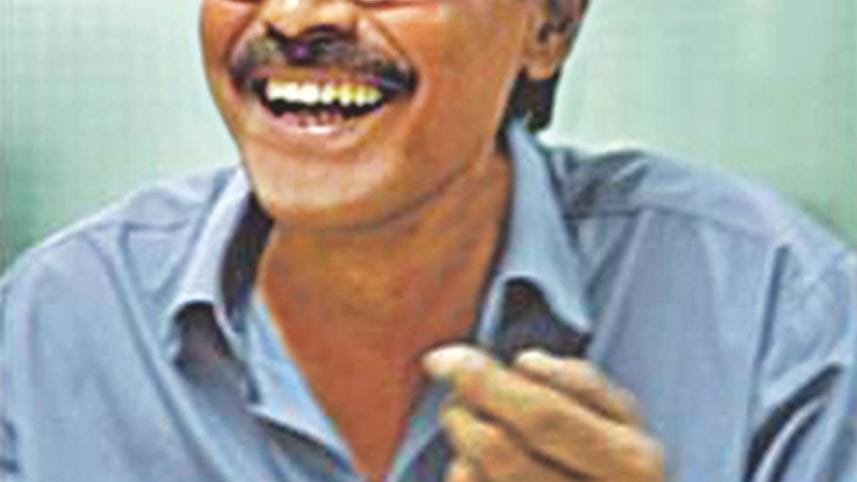Syed Abdul Hadi through music at 75!

At the Dhaka University, friends would often refer to Syed Abdul Hadi as "Bhomora" --meaning a bumblebee. As a student, Hadi would often sing Shyamal Mitra's popular song Bhomora phooler bon-e modhu nitey at the cultural programmes. It doesn't leave much to the imagination how he picked up his nickname! "It was music composer Karim Shahabuddin who heard me at a function and introduced me to the film industry in 1960.
My debut as a playback singer was in the film titled Yeh Bhi Ek Kahani.
"From then on there was no looking back," says Ekushey Padak 2000 winner Hadi.
Singer Syed Abdul Hadi turns 75 today. Acute observer of the music industry as it unravelled since the '30s, he has made an indelible imprint in the hearts of music lovers.
A household name and a musical talent in our country for about half a century, Hadi is distressed at the current music scene. "The entertainment industry is in disarray. It is more of a show business," he says. "I view music similar to a flowing river. As the river flows, there is no human hand that can change its course; similarly, music takes its own course. It is rarely still--and like sparkling crystal clear water, it also reflects the society where the music originates.
"Take for instance, Kolkata in the '30s when it was the centre of performing arts for the Bengalis. The cultural field was vibrant. After the establishment of HMV, the Calcutta Radio Station in 1928 and the talkies in place of silent movies brought about a transformation; from then on music industry grew to greater heights in West Bengal. This was a booming period when artistes of immense talents, including singers, composers and lyricists came together to create the golden era of Bengali music.
"The sweet romantic notes of the '30s-'60s were hummed by one and all.
"After Partition, music as an industry developed with the introduction of radio, cinema and other media. During 1965, HMV was established in erstwhile East Pakistan. However, as a component of film songs, recordings were still carried out in Lahore, West Pakistan. You can see the reason why music as an industry hardly attained full potential in this part of the region. Even the market was stagnant," continues Hadi.
Hadi goes on to add, "During the '70s, audio industries began to take shape, although very few in number. However, during the '70s, the genre of adhunik songs of our country reached its zenith and we surpassed the popularity of the songs of West Bengal."
“By the '80s music industry in our country, had gained momentum. I agree there are two sides to a coin, but I fully disagree with the all out 'commercial approach' in the music industry. In recent times due to commercialisation, music has turned into a 'commodity'. It has debased the quality and as a listener I feel cheated."
In a lighter moment, the singer says, "Remaining at peace with oneself is a prerequisite for any performer. Musicians need to concentrate, so as to strike a chord in the audience. That is exactly what 'angling' is for me. While fishing, I am deeply focused as I soak in the tranquility of the all-pervasive nature. There are instances when I would have recording sessions but be totally oblivious of the time. I would sit on a macha (bamboo platform) and wait for that tug on my fishing line! Since there were no cell phones at that time, people would come frantically looking for me at my favourite hangout spots near the lakeside and rush me to the recording studios!
"The recording sessions would often continue the entire night, but we would not be fatigued. Such was the passion amongst the recording team of artistes and technicians that it seemed to hang like a heavy cloth over us."
Discussing the recent talent hunt programmes he says, "I strongly believe that the programmes should be thoroughly scrutinised so that only the best come forward. It should not only be a commercial venture. The best talents of the country have always come through a range of experiences and training. Emerging artistes should be warned against the evils of cheap popularity -they can easily lead you to believe you're on top of the world when you're actually little more than a momentary 'craze'."



 For all latest news, follow The Daily Star's Google News channel.
For all latest news, follow The Daily Star's Google News channel.
Comments